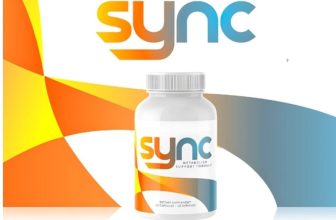Side Effects of Quietum Plus When Used for Hearing Support: What You Need to Know

Hearing loss is a common issue that affects many individuals as they age, and finding a supplement that supports ear health is crucial. Quietum Plus is one such product that claims to promote healthy hearing by improving blood flow to the ears and reducing inflammation. While many users report positive results from taking Quietum Plus, it’s important to understand both its benefits and potential side effects. In this article, we’ll explore the side effects of Quietum Plus when used for hearing support, helping you make an informed decision.
What is Quietum Plus?
Quietum Plus is a dietary supplement designed to support hearing health and reduce the symptoms of ear-related issues, such as tinnitus. It contains a blend of natural ingredients like Ginkgo Biloba, Hibiscus, Niacin, and other herbs, which are known for their ability to improve circulation, reduce inflammation, and support overall ear health.
By addressing the root causes of hearing issues, Quietum Plus aims to improve hearing function, reduce ringing in the ears, and enhance auditory clarity. However, as with any supplement, it’s important to consider possible side effects when incorporating it into your wellness routine.

Key Ingredients of Quietum Plus
Before we dive into the potential side effects, let’s take a closer look at the active ingredients in Quietum Plus that are believed to contribute to its benefits for ear health:
- Ginkgo Biloba: Known for its ability to improve blood circulation and support cognitive function, Ginkgo Biloba may help improve hearing by enhancing blood flow to the ears.
- Hibiscus: This flower is used to promote blood circulation and reduce inflammation, which can help alleviate tinnitus symptoms.
- Niacin (Vitamin B3): Niacin helps improve blood flow and reduce the occurrence of tinnitus.
- Garlic: Garlic is often used for its anti-inflammatory and circulatory benefits, supporting ear health and reducing inflammation.
- Other Herbal Ingredients: Quietum Plus also contains a variety of other herbs that work together to support hearing and overall ear health.
Potential Side Effects of Quietum Plus
While Quietum Plus is made from natural ingredients, it’s still important to be aware of potential side effects, especially if you have existing health conditions or are taking other medications. Below are some possible side effects that users may experience:
1. Digestive Discomfort
Some users may experience mild digestive issues when taking Quietum Plus, especially if they have a sensitive stomach. Ingredients like garlic and niacin can sometimes cause mild gastrointestinal discomfort, such as:
- Bloating
- Gas
- Nausea
- Upset stomach
To minimize these side effects, it’s recommended to take Quietum Plus with food or at a time when your stomach is not empty.

2. Allergic Reactions
Though rare, some individuals may experience allergic reactions to certain herbs in the formula, such as Ginkgo Biloba or Hibiscus. Symptoms of an allergic reaction could include:
- Rashes
- Itching
- Swelling
- Difficulty breathing
If you experience any signs of an allergic reaction, stop taking Quietum Plus immediately and consult a healthcare professional.
3. Headaches or Dizziness
Ingredients like Niacin (Vitamin B3) can sometimes cause mild side effects such as headaches or dizziness, especially if you are not used to taking supplements containing niacin. This side effect typically occurs when you take higher doses of niacin, but it can happen in sensitive individuals.
If you experience headaches or dizziness, try reducing the dosage or taking the supplement with food to help reduce these symptoms.
4. Interaction with Medications
As with any supplement, there’s always a possibility of interaction with medications you may already be taking. For example, Ginkgo Biloba has blood-thinning properties and may interact with blood thinners like warfarin or aspirin, potentially increasing the risk of bleeding.
If you are currently on any prescription medications, especially blood thinners or medications for blood pressure, it’s important to consult with your healthcare provider before taking Quietum Plus.

5. Potential Effects on Blood Pressure
Some ingredients in Quietum Plus, like Ginkgo Biloba, can influence blood pressure. For individuals with low blood pressure or hypertension, there is a risk that these ingredients might either lower blood pressure further or interact with blood pressure medications. It’s crucial to monitor your blood pressure if you have a history of cardiovascular issues.
Who Should Avoid Quietum Plus?
While Quietum Plus is generally safe for most individuals, there are certain groups of people who should avoid this supplement or use it with caution:
- Pregnant or breastfeeding women: Due to the lack of clinical studies on the safety of some of the ingredients in Quietum Plus during pregnancy or breastfeeding, it’s best to avoid using this supplement.
- People with allergies to certain herbs: If you know you are allergic to Ginkgo Biloba, Hibiscus, or any other herbs in the formula, it’s advisable to avoid this product.
- Individuals on blood thinners: Since Ginkgo Biloba can interact with anticoagulants, those on blood thinners should consult a healthcare professional before using Quietum Plus.
How to Minimize Side Effects
To minimize potential side effects when using Quietum Plus, here are a few tips:
- Start with a low dose: If you’re unsure how your body will react to the ingredients, start with a smaller dose and gradually increase it as your body adjusts.
- Take with food: To avoid digestive discomfort, take Quietum Plus with a meal to help your body better absorb the ingredients.
- Consult with a healthcare professional: If you’re on medications or have pre-existing health conditions, it’s always a good idea to consult with a healthcare provider before adding any new supplement to your routine.
Final Thoughts
While Quietum Plus offers a natural and effective solution for supporting ear health and managing hearing issues, like any supplement, it may come with some potential side effects. Understanding these side effects and how to manage them is essential for anyone considering Quietum Plus for hearing support. Always remember to consult with a healthcare provider, especially if you have underlying health conditions or are on medication.
If you’re looking for more information about the ingredients, benefits, and effectiveness of Quietum Plus, check out the full review on Fresh Doctor.














